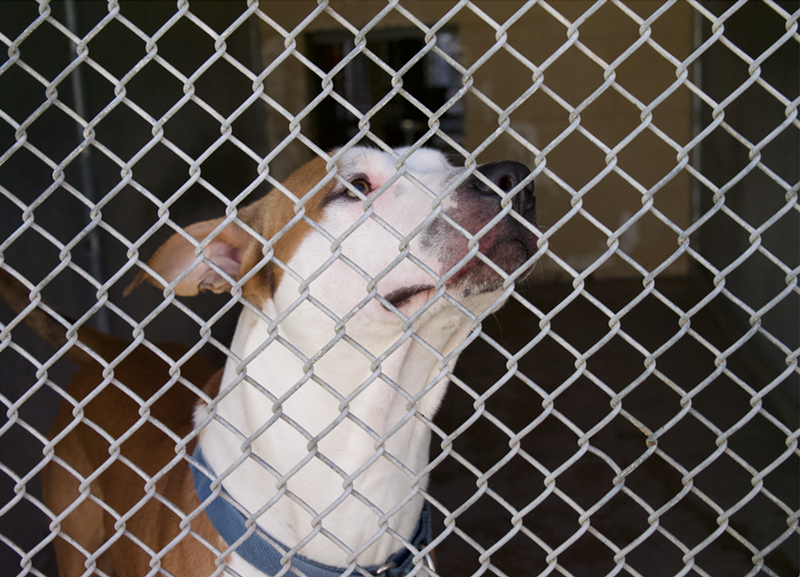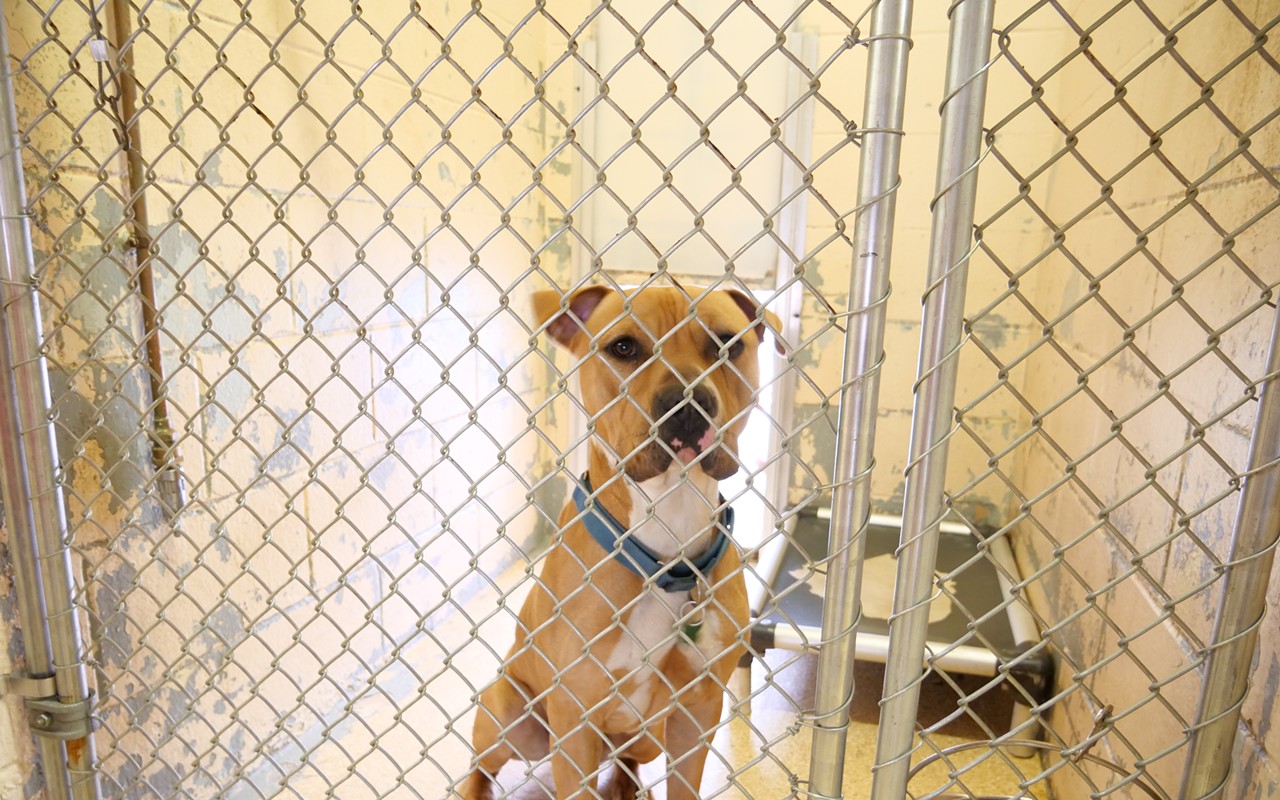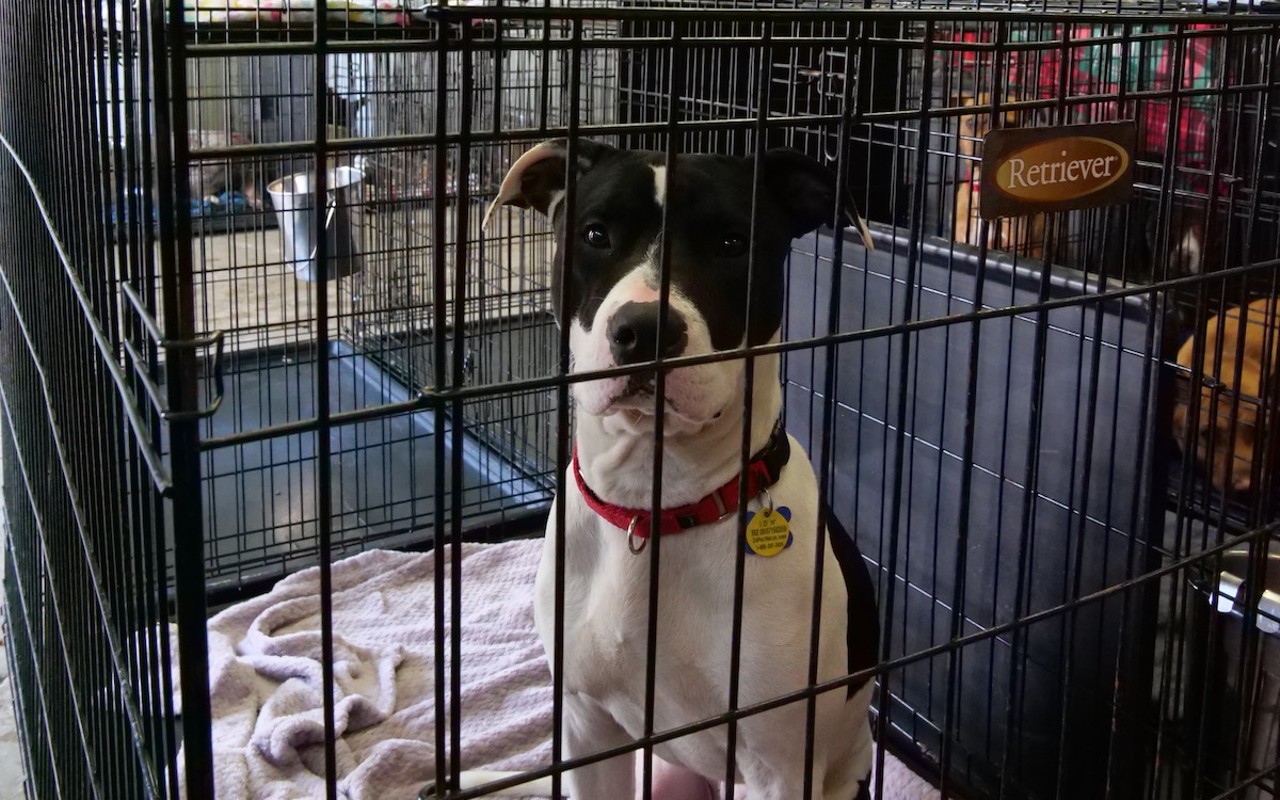
Photo: Madeline Fening
CAC has enlisted the help of CDV expert Dr. Cynda Crawford from the University of Florida to help tamp down the spread of the virus.
Cincinnati Animal Care (CAC) has had to euthanize dozens of dogs and spend thousands of dollars treating a canine virus that could take months to eradicate from its Northside animal shelter, CAC told CityBeat.
CAC, which is Hamilton County’s official animal shelter, announced a pause on dog adoptions and intake on April 6 in order to treat and contain the spread of canine distemper virus (CDV). The virus primarily impacts unvaccinated dogs and puppies and cannot be spread to cats or humans. CDV can cause fever, cough, eye and nose discharge, GI distress, lethargy, and swelling of the paw pads.
So far, CAC has seen 37 positive cases of CDV in its dog population, with 25 requiring euthanasia. CAC spokesperson Ray Anderson said the shelter chose to euthanize the dogs because of the severity of their illnesses, not for lack of space.
“We tested the sickest dogs first, so we expected this to be our highest ratio of positive cases and severity,” he told CityBeat. "That being said, capacity remains a major concern. If our facilities fill up while we’re trying to manage this, we’ll lose healthy dogs.”
Anderson said addressing an outbreak of a highly contagious virus in the shelter takes careful, exhaustive work from CAC’s medical staff.
“I think it’s easy to think, ‘Well if there’s a vaccine, just give it to the dogs,’ but it just doesn’t work like that,” he said. “The vaccine doesn’t work immediately, boosters are needed and given, the vaccine doesn’t work as well on dogs that are already sick or that are incubating the virus, and there is no feasible way to just separate hundreds of dogs from each other after the initial vaccine at intake.”
Community sheltering and off-site solutions
For additional support, CAC has enlisted the help of CDV expert Dr. Cynda Crawford from the University of Florida. Crawford discovered the canine influenza virus and developed its vaccine. Anderson said Dr. Crawford has helped more than 100 shelters across the country get through CDV outbreaks.
“Dr. Crawford says community sheltering is crucial amid a CDV crisis,” Anderson said. “Keeping animals out of the shelter will save lives. If you find a lost dog and it is safe to do so – keep it in the neighborhood as long as possible.”
Community sheltering gives dogs a statistically higher chance of returning home the longer they’re kept in the neighborhood where they’re found. It also helps CAC to control the spread of the virus and manage their already high dog population.
Anderson said adopting or fostering one of the hundreds of healthy dogs at CAC is the biggest help the shelter could ask for:
Anderson said adopting or fostering one of the hundreds of healthy dogs at CAC is the biggest help the shelter could ask for:
- CAC’s new overflow shelter at 4210 Dave Ave. in Northside is currently housing dogs that are new to the shelter, which is open to the public and potential adopters daily with no adoption appointment necessary.
- The main shelter headquarters at 3949 Colerain Ave. in Northside is open for cat adoptions and fosters and has recently reopened for the dogs that have been determined by an antibody test to be CDV immune.
- CAC’s Pet Adoption Center at 3262 Highland Ave. in Pleasant Ridge reopened over the weekend with expanded hours to help increase the number of adoptions and fosters.
What's next
Anderson said containing the virus fully could take another two months, which will require community support and continued expensive testing.
“Volunteers are always needed. Donations are incredibly helpful right now as we’re splitting supplies across multiple sites. And testing is so, so expensive,” he said.
Each test costs $65. Anderson estimates CAC’s medical staff has conducted 80 tests so far, adding up to more than $5,000 on testing alone.
Follow CityBeat's staff news writer Madeline Fening on Twitter and Instagram.
Coming soon: CityBeat Daily newsletter. We’ll send you a handful of interesting Cincinnati stories every morning. Subscribe now to not miss a thing.
Follow us: Google News | NewsBreak | Reddit | Instagram | Facebook | Twitter








